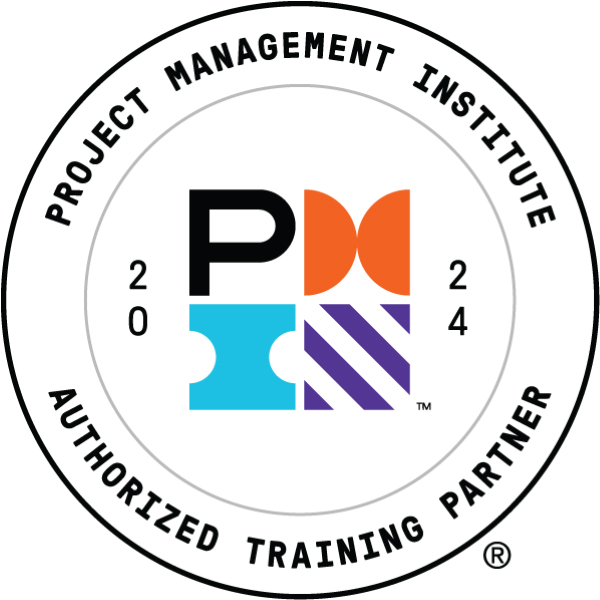MS Project Master Class Series
Series includes seven classes
In this series of Microsoft Project master classes, you learn to integrate project documents, create schedules, record estimates, schedule activities and tasks, assign resources to an activity or task, track performance to date and reconcile the schedule to changes.
The series also counts as one course toward your UWM Project Management Certificate.
The series is offered live online using Zoom. A computer with Microsoft Project software is needed.
This course can be applied to the following certificates:
Project Management – Advanced Certificate
Project Management Certificate
Instructor

Sandra Hoskins, ISP, ITCP, PMP, CSM
As a speaker, mentor, educator, consultant, author and project manager, Sandra Hoskins is committed to working with people who want to create excellence in their life, whether at work, home, play or in their community. Sandra’s passions are project management ... read more
Benefits and Learning Outcomes
- Understand the importance of configuring Microsoft Project and using network schedules to manage the critical path
- Create a resource pool for managing staff and material resources
- Input task dependencies to create project schedules
- Gain immediate results that you can apply daily
- Network with others to collaborate on real-world challenges/solutions
Course Outline/Topics
Introduction to MS Project
Get started using MS Project by understanding how MS Project works, its capabilities and the differences in each version of the software.
Benefits and Learning Outcomes:
- Understand the MS Project interface (including differences between the standard, professional and online editions)
- Level the playing field: Setting the scheduling standards
- Leverage work, units and duration (how they really work)
- Understand the advantages and disadvantages of the version that you have
Working With Calendars
Understanding calendars is key to using MS Project well. You learn options for calendars, how to create and assign them and their impact on the schedule.
Benefits and Learning Outcomes:
- Understand how the calendars impact the schedule
- Understand the impact of the default calendar options
- Create and assign base/organizational calendars
- Create and manage project calendars
- Create and manage resource calendars
- Understand where to use task calendars and the impact on the schedule
- Use nonstandard work calendars (shift/nonstandard working days)
Setting Up the Resources
All projects require resources. MS Project can help you plan and leverage your resources when you know how to set project priorities and standards, and assign work, duration and units.
Benefits and Learning Outcomes:
- Set the project properties
- Leverage the project summary (connecting the base calendar to the schedule)
- Use the resource sheet, deciding what information is important to know about project resources
- Set the resource standards (work/material/cost resources)
- Use the part-time assignment function and the impact on work, duration and units
- Assign skills (generic) resources to the schedule
- Use resource rates to estimate costs
Work Breakdown Structures and Estimating
By creating and maintaining a work breakdown structure, you will be able to leverage the estimating capabilities of MS Project and customize fields to meet your needs.
Benefits and Learning Outcomes:
- Create and maintain a work breakdown structure
- Customize an outline field for tracking the location of the work
- Leverage the estimating capabilities of MS Project
- Create and use custom fields to calculate Level of Confidence estimates
- Create and use custom fields for 3 Point (PERT) estimates
- Use the work, units and duration fields for estimating
Scheduling Techniques, Part 1
Learn scheduling best practices and how to apply them to your work breakdown structure. You will be able to customize your views and share your schedule with stakeholders.
Benefits and Learning Outcomes:
- Discuss optimal (best) practices for scheduling
- Use the work breakdown structure
- Manage the order of execution
- Finish to start
- Start to start
- Finish to finish
- Lead and lag
- Create and maintain task dependencies
- Write a custom function to
- Locate missing predecessors
- Locate missing successors
- Share the schedule with project stakeholders
Scheduling Techniques, Part 2
Explore how to publish the schedule and choose the best communication format. You will be able to customize the schedule for presentations to audiences with varying needs.
Benefits and Learning Outcomes:
- Publish the schedule
- Communicate formats
- Gantt format
- Timeline
- Plan and troubleshoot format
- Tracking Gantt
- Network diagrams
- Use milestones and the deadline date
- Customize the schedule for presentation to different audiences
Updating and Reconciling the Schedule
Learn to update and reconcile your schedule to performance and actual progress. Customize communication with team members in the ways that best fit your projects.
Benefits and Learning Outcomes:
- Reconcile individual progress on tasks
- Reconcile performance to date
- Update actual progress to date
- Develop a custom view for communicating with team members
- Determine what to communicate
- Create a custom table with just what the team needs to see
- Create a custom filter to focus on the work cycle
- Create a custom group to communicate the scheduled work
Prerequisites
Project Management Foundations or equivalent, and familiarity with Microsoft Office
Date: 7 Fri, Jan 10-Feb 21, 2025
Delivery Method: Live Online
Time: 8-10am CT
Platform: Zoom
Instructor: Sandra Hoskins, ISP, ITCP, PMP, CSM
Fee:
$845 by Dec 26, 2024
$895 after Dec 26, 2024
CEUs: 1.4, PDUs: 14.0
Enrollment Limit: 20
Program Number: 5025-16355
Note: Participants will receive instructions for logging into Canvas to access course materials and Zoom links approximately one week prior to course start date. This series will meet for seven Friday mornings; Jan. 10, 17, 24, 31, Feb. 7, 14, 21, 2025
Full payment or arrangement for payment (i.e. purchase order or payment plan) must be made before the first day of class.
Registration Deadline: Jan 10, 2025
